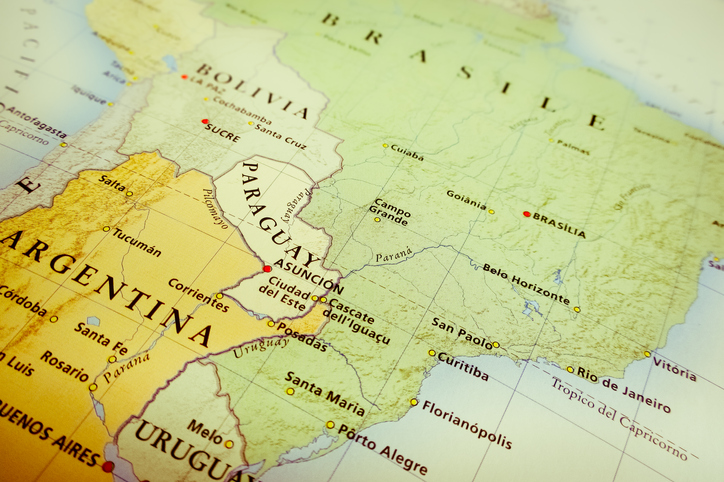
Posted On : Dec 18 2020
The Tri-Border Area (TBA) of South America : A Nexus for Terrorist and Organized Crime
The Tri-Border Area (TBA) of South America, where Argentina, Brazil, and Paraguay converge, has long been a hotbed for both terrorist and organized criminal activities.

Its unique geographical location and economic dynamics make it an attractive hub for nefarious actors seeking to exploit its opportunities. In this article, we will delve into the complexities of the TBA and explore the converging threats of terrorism and organized crime in the region.
The TBA, encompassing the cities of Ciudad del Este (Paraguay), Foz do Iguaçu (Brazil), and Puerto Iguazú (Argentina), is situated at the crossroads of the borders of three major South American countries. This strategic location provides an ideal environment for a multitude of illegal activities to flourish. One of the most significant issues in the TBA is its role as a haven for transnational organized crime, with drug trafficking, money laundering, and contraband smuggling being prevalent.
The presence of extremist groups in the TBA is not a new phenomenon. Hezbollah, a Shiite militant organization, has long maintained a presence in the area, using it as a base to raise funds and engage in various criminal activities. These funds are believed to be channelled back to support the organization's global operations. The porous borders and weak law enforcement in the TBA make it an attractive place for terrorist groups to establish themselves.
In addition to Hezbollah, the TBA has also been associated with other extremist organizations, such as factions of Al Qaeda and the Revolutionary Armed Forces of Colombia (FARC). These groups often exploit the region's illicit trade networks to fund their operations and carry out criminal activities.
Transnational organized crime in the TBA is a multifaceted problem. Drug cartels, human traffickers, and arms smugglers are known to operate in this region. The volume of illegal narcotics that flow through the TBA is staggering, with cocaine from the Andean region being trafficked through the area and distributed worldwide. The profits from these illegal activities bolster criminal organizations, further exacerbating security challenges.
The economic dynamics of the TBA contribute significantly to the persistence of these threats. Poverty and limited opportunities in the region have driven some individuals to engage in illegal activities, while others are lured by the prospect of quick and substantial financial gains offered by organized crime and terrorism.
The governments of Argentina, Brazil, and Paraguay, in collaboration with international organizations and the United States, have undertaken initiatives to combat the convergence of terrorism and organized crime in the TBA. Enhanced border security measures, intelligence sharing, and financial controls have been implemented to disrupt the networks that sustain these threats. These efforts, while yielding some successes, continue to face challenges due to the region's complexity and the adaptability of criminal and terrorist networks.
The Tri-Border Area of South America represents a formidable challenge in the fight against terrorism and organized crime. Its unique geographical location and economic vulnerabilities provide a fertile ground for illicit activities to persist. Combating these threats requires a multifaceted approach that encompasses international cooperation, improved governance, and addressing the underlying socio-economic factors that drive individuals into the clutches of criminal and terrorist networks. The TBA remains a stark reminder that global security concerns often transcend national boundaries and necessitate concerted efforts to ensure the safety and stability of the region.
No Comments Added




















